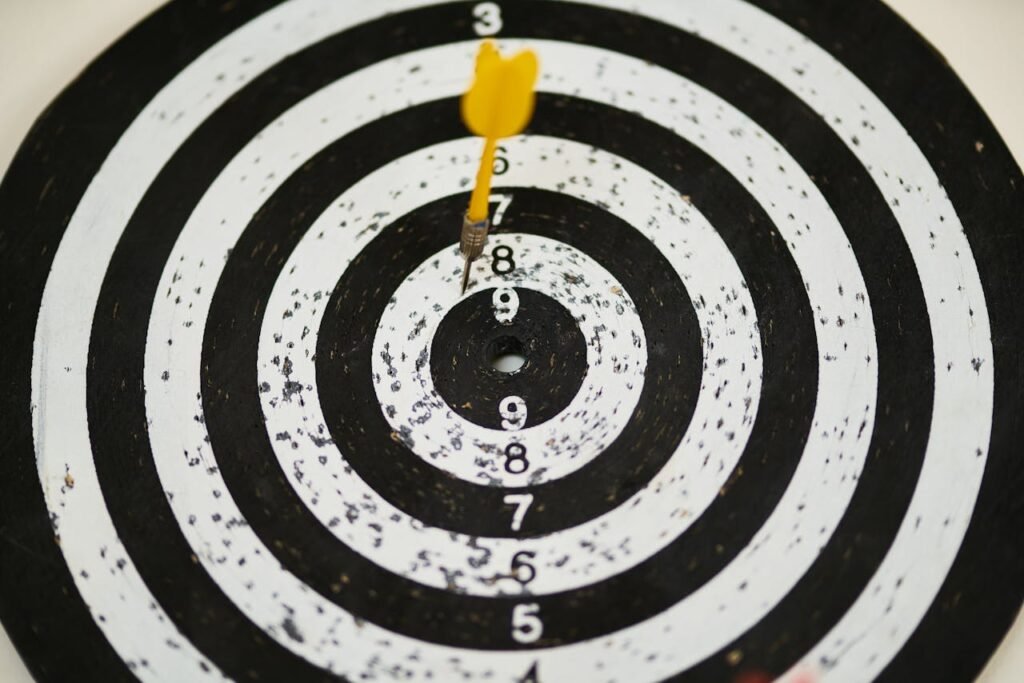How to Build The Concept of Flow: A Psychological State of Peak Performance

The Concept of Flow is the magic key to unlock success in any study session. But let’s be honest, maintaining deep focus for long periods can be difficult. Whether it’s exam time, you have a huge project looming, or you are trying to learn a very difficult subject, distractions arise. And we all know the drill – you check your phone, you start daydreaming, you feel overwhelmed just thinking about all of the information that you have to process. You throw your hands up in frustration.
Now what if I told you there’s a way to conquer deep focus, immerse yourself in your study area for hours and learn with ease? I’ve been there – struggling to maintain focus, trying to do things on a different day, and burning out physically and mentally.But I’ve found the solution, and it’s not just willpower!
It’s everything about the science of flow, a mental state where you are uninterrupted and will perform best.
I’ll share in this article the exact tips and techniques I have used (and still use!) to keep a deep focus across my study periods. I’ll break down the methods into a couple of simple performable steps that will ultimately change how you study for the rest of your life.
So, stay with me! If you are seeking to study smarter, and not harder, keep reading! These will not only help you improve your focus but overall productivity and results.
The Concept of Flow: A Psychological State of Peak Performance
Flow is a strong mental state, where you experience intense concentration, total immersion, and peak performance.
It was first researched and described by psychologist Mihaly Csikszentmihalyi in the 1960s and changed our understanding of human motivation and productive activity. When you are in flow, time seems to slow down, distractions disappear, and you are entirely absorbed in the task at hand. Flow is the “zone” that athletes say they feel, artists describe while creating, and that students are always trying to find when they are studying for long stretches.
In his research, Csikszentmihalyi defined flow as a state in which people are so involved in an activity that nothing else matters.The experience is so enjoyable that people will continue to do it even at a great cost. For the sheer sake of doing it. It is the sweet spot between boredom and anxiety, in which you are neither stressed nor under-stimulated.
If you achieve flow while studying, it means that you are not only deeply concentrated but also feel engaged, and that you feel productive accompanied with a sense of achievement as you progress.
When students achieve flow it can make study not only a productive activity, but can also be really enjoyable. That is, whether you are prepping for an exam or learning a new topic, recognizing what flow feels like and practicing flow could change your study habits and the stress associated with study.
Components of Flow: The Building Blocks of Peak Focus
Flow isn’t just about being focused; you need to get to a mental state in which you are immersed in what you’re doing. Csikszentmihalyi has established a number of key components for getting into the flow state, and understanding how these components can affect your focus is essential to improve your ability to focus during long study times. Let’s take a closer look at these components:
1. Clarity of Goals – Micro and Macro Goals

Clarity of goals is one of the most important components of flow. For any flow state, your goals must be clear.
Goals include not only macro goals (passing an exam, big ideas) as well as micro goals (smaller, more immediate projects, including completing a chapter or solving specific problems).
When you have well-defined goals, you uniquely identify what you are moving toward, and it allows your mind to go fully into the goal without wasting energy on confusion. This makes perfect sense. If you are studying for a test, your macro goal is the test, but your micro goals might be reading a chapter, taking notes, or reviewing concepts.
Having tasks can be overwhelming, but when the tasks unfold into simple, manageable, and clear goals, you hold the niche for where you want to go. You are not just working well without purpose or even worse not knowing where to go. When you know exactly what you want to do, the mind is free to deeply concentrate and exactly target energy.
2. The Target Should Be Challenging
The second element is about making sure your goal is challenging, yet attainable. If you are doing something that is easy, you will get bored; if you are doing something that is too hard, you will potentially flip into anxiety and frustration. The trick is getting the challenge just challenging enough that flow is possible.
Take for example you are preparing for a history exam. If you are just reading some notes and enjoying no difficulty, you will get bored and stop thinking about the material.
On the contrary, if you are dealing with difficult material that is inducing feelings of overwhelm, you will feel anxious and just give up mentally as well. So, if you’re trying to experience flow, the answer is to find a task that pushes your abilities just enough that you don’t lose interest.
You don’t have to set highly ambitious challenges with the intent of achieving flow. Instead of reading through an entire chapter of a textbook, consider challenging yourself to deeply understand one concept or to complete a set of practice problems in a certain amount of time.
Such intentionality creates a level of engagement that keeps your mind active and in the zone.
3. Distraction is the Foe of Flow
If there is any major hurdle to deal with when trying to get into flow, it is distractions. Distractions are the greatest foe to flow because they disrupt your focus and take you out of being in that completely focused state.
When studying, distractions can include your phone, social media, noise, or even your own thoughts.
Each time you experience a distraction, you lose valuable momentum, and it may take time to bring yourself back into focus. For additional science-backed methods on resisting distractions, read this guide on staying focused while studying. This is all the more reason to create a distraction-free environment.
The first step is to deal with any external distractions. Turn off notifications on your phone, close unnecessary tabs on your computer, and clearly communicate with the people around you about your need for interruption-free study time.
Then there is the aspect of internal distractions (e.g. anxiety or jumbled thoughts) that often intrude when trying to study.
Mindfulness training can help improve your chances of staying in the present and preventing you from thinking about other things. If you are thinking about things that don’t matter, being deep into focus necessary for flow is a challenge.
4. It Takes Time: Building Focus Over Time

The flow state doesn’t happen overnight – it takes time and practice. Building deep focus doesn’t happen instantly; it’s a slow process.
In the beginning, just getting yourself to focus will take time, but practicing over time can train your brain for the flow state.
Research has shown us that the more frequently you enter flow, the easier it is to reach it again. You will likely only focus for small increments in the beginning, but over time focusing for multiple increments of time will prepare you for the flow state.
You will have to be patient with yourself. Make sure you don’t expect immediate results. Take breaks to restore your focus. Explore different methods of studying, such as the Pomodoro Technique, to progressively build your attention span overall. The most obvious solution requires practicing consistently. You will eventually establish yourself in the flow state as a second nature action.
Ultimately, these four areas – clarity of goals, challenges rather than being overwhelmed, eliminating distractions, and allowing for time will provide you a chance for entering flow and enhance your study sessions significantly.
Be Consistent
Consistency is the key to achieving deep focus over long stretches of study time. It is about more than just a single productive study session, but about making focus a habit over time. If you want to complement this with strategic techniques to study more efficiently, check out these 7 proven tips to study less and get higher grades.
It takes discipline, patience, and strategy to develop and maintain habits that lead to studying consistently. If you are not consistent, even the best focus tricks will not work. Here are a couple of tips to gain consistency in your studying:
1. Set a routine and stick to it
When developing consistent studying habits, it is always a good idea to start by establishing a routine. Pick a time of the day that you will consistently set aside to study for school. It is important that you take that time to do nothing but study (no distractions).
Consistency is achieved through repetition, and by setting aside time to study, you create expectations for yourself and your brain. You should embrace your study time, as you would if you were going to an important meeting, or attending an appointment.
2. Set reasonable expectations
It is important to set reasonable goals for every study session. When planning out your study session, break your tasks into smaller chunks. Instead of just setting aside hours for continuous studying without any agenda, set small goals for yourself, such as: finish a set of problems, read a chapter and take summary notes, or review your class notes. If you complete these goals you should feel encouraged to continue studying.
3. Track Your Progress
Every progress needs a study tracker. Record the study tasks you completed, time spent on each task, and your level of focus. This will keep you accountable, as well as allow you to track your progress throughout the year.
4. Build Gradually
Don’t try to overload yourself right off the bat. Start with smaller time blocks and continue to build time as your focus improves. This will help you cultivate endurance and keep you motivated to stay consistent without becoming overwhelmed.
5. Make It Fun
Consistency doesn’t mean studying in a mode of duress. Try to make your study experience as fun as possible! Use active learning techniques, reward yourself with breaks, or listen to music that helps the flow of focus. If studying is fun, the consistency will come naturally.
Conclusion
At this point, you’ve learned the essential practices for achieving deep focus for extended periods of time during study sessions.
It’s important you understand everything from finding the flow state, to goals and distractions, and every aspect of this process as it’s helpful not just in studying, but immersively engaging in your work.
Building consistency is the glue for all of this, building sustainable focus takes time, but when you add all these strategies to your practice to reach your full potential for productivity and success will be incredible.
But, this is not the end. Here, the most important part is to start engaging in practice. First, focus on some clear goals during your study sessions, try to eliminate distractions, and figure out what works best for you and your lifestyle in creating a study routine.
At first this may take some work, but later you’ll eventually become accustomed to these new practices and eventually find the flow state more accessible, and you won’t just be working harder in your study sessions, but also enjoying yourself much more.
An important note, building deep focus is not a “one hit wonder” of an achievement; it’s a process. Be patient, consistent, and work on your focus each day, and you’ll see the effectiveness of your focus grow day after day.
So, will you take these strategies and put them into practice? Will you make focus your greatest ally for study? The choice is yours, but rest assured the impact will be tremendous!




3 Comments on “How to Build The Concept of Flow: A Psychological State of Peak Performance”